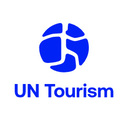Green Hotel Investments To #Restarttourism
Destination Capital (DC) has signed a collaborative arrangement with the World Tourism Organization (UNWTO) of the United Nations to support the rejuvenation of the hotel industry. The arrangement supports the relationship DC has with the International Finance Corporation (IFC) to promote investment in green and sustainable tourism accommodation and to stimulate re-employment, particularly in the wake of the COVID-19 pandemic.
The collaboration between UNWTO and Destination Capital is based on DC’s adoption of best practices aimed at reducing carbon emissions and operating hotels in a manner consistent with IFC’s environmental and social criteria. Against this backdrop, DC acquires and repositions freehold hotels of 150-250 rooms in Thailand and across South-East Asia with the aim of implementing sustainable water and energy systems. It also works to promote gender equality at every level of the hospitality sector, another of UNWTO’s core priorities and in line with Sustainable Development Goal number 5.
While governments and destinations around the world are working on vaccination programs to accelerate the restart of the tourism, UNWTO is working with the private sector to encourage employers to play their part in the recovery of local communities through job creation and training programs. UNWTO data shows that international tourism arrivals fell by 1 billion in 2020, with the crisis carrying over into 2021. Worldwide, this has placed as many as 120 million tourism jobs directly at risk. Moreover, Asia and the Pacific has been the worst-affected of all global regions, and young workers and women are among the hardest hit by the downturn in tourism employment.
In line with the 2030 Agenda for Sustainable Development, DC recognizes the hotel industry not only has a responsibility to re-hire and re-train hotel staff. It is also increasingly under pressure to reduce its carbon footprint and mitigate the impact of energy and water consumption as well as food waste and environmental degradation. DC is committed to retrofitting its hotels to be compliant as ‘green hotel’s as per the Excellence in Design for Greater Efficiencies (EDGE) standards established by IFC.
About Destination Capital
Destination Capital is a private equity real estate investment company based in Bangkok Thailand which focuses on acquiring, renovating and repositioning hotel assets such that they are EDGE compliant and follow a rigorous sustainability protocol in order to unlock value for our capital partners. Rigorous asset manage programs are in place to yield higher values upon exit while pursuing a “Triple Bottom Line” strategy: Planet, People, Profit.
About UN Tourism
The World Tourism Organization (UN Tourism), a United Nations specialised agency, is the leading international organisation with the decisive and central role in promoting the development of responsible, sustainable and universally accessible tourism. It serves as a global forum for tourism policy issues and a practical source of tourism know-how. Its membership includes 166 countries, 6 territories, 2 permanent observers and over 500 Affiliate Members from the private sector.
Media enquires: [email protected]
UN Tourism Communications Department
+34 91 567 8100
UN Tourism
